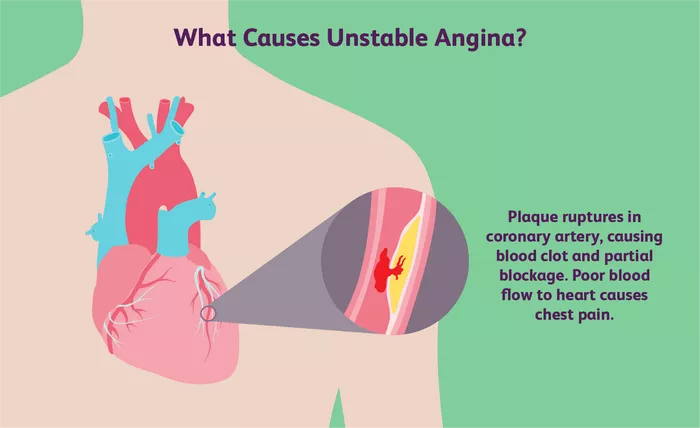Heart inflammation, medically known as myocarditis, endocarditis, or pericarditis depending on the area affected, can significantly impact heart health. Recognizing the signs early is crucial for effective treatment and management. This article delves into the symptoms of heart inflammation, offering a comprehensive guide to understanding this condition.
What Are The Signs of Heart Inflammation?
Heart inflammation can manifest in various forms, each presenting unique symptoms. The inflammation can affect the heart muscle (myocarditis), the inner lining of the heart chambers and valves (endocarditis), or the sac surrounding the heart (pericarditis). Here’s an in-depth look at the signs associated with each type:
Myocarditis
Myocarditis is inflammation of the heart muscle, which can impair the heart’s ability to pump blood effectively. Symptoms often resemble those of other heart conditions and can vary widely in severity.
Chest Pain: Often described as a stabbing or pressure-like pain, it can occur at rest or with exertion.
Fatigue: Unusual tiredness that doesn’t improve with rest.
Shortness of Breath: Difficulty breathing, especially during physical activity or when lying down.
Irregular Heartbeats: Palpitations or arrhythmias that feel like skipped beats or a racing heart.
Swelling: Edema, particularly in the legs, ankles, and feet due to fluid retention.
Flu-like Symptoms: Fever, sore throat, body aches, and joint pain, particularly if myocarditis is due to a viral infection.
Endocarditis
Endocarditis is inflammation of the heart’s inner lining, usually caused by bacterial infection. The condition can be acute or chronic, with symptoms developing rapidly or slowly over time.
Fever and Chills: Persistent high fever often accompanied by chills.
Heart Murmur: New or changed heart murmurs, detectable by a doctor during a physical exam.
Night Sweats: Excessive sweating at night.
Fatigue: Severe tiredness and weakness.
Muscle and Joint Pain: Generalized discomfort and pain in muscles and joints.
Swelling: Edema in the feet, legs, or abdomen.
Petechiae: Tiny red or purple spots on the skin, under fingernails, or inside the mouth.
Janeway Lesions and Osler’s Nodes: Red, painless spots on the palms and soles (Janeway lesions) or tender, small nodules on the fingers or toes (Osler’s nodes).
Pericarditis
Pericarditis involves inflammation of the pericardium, the sac-like covering of the heart. This condition can cause distinctive symptoms that help in its identification.
Sharp Chest Pain: Often described as a stabbing pain that may radiate to the neck, shoulders, or back, and worsens with deep breathing or lying down.
Pericardial Friction Rub: A distinctive rubbing sound heard through a stethoscope, indicative of the inflamed pericardium layers rubbing against each other.
Shortness of Breath: Difficulty breathing when reclining or with exertion.
Fever: Low-grade fever accompanying other symptoms.
Swelling: Edema in the legs or abdomen in more severe cases.
General Symptoms of Heart Inflammation
In addition to specific symptoms related to myocarditis, endocarditis, and pericarditis, there are general signs of heart inflammation that can overlap between these conditions.
Systemic Symptoms
Fatigue and Weakness: Generalized tiredness and a lack of energy.
Fever: Persistent or recurrent fever without a clear source.
Weight Loss: Unexplained weight loss, often seen in chronic endocarditis.
Cardiac Symptoms
Chest Pain: Can be sharp, stabbing, or pressure-like, depending on the type of heart inflammation.
Palpitations: Irregular or rapid heartbeats, often noticed during periods of rest.
Shortness of Breath: Can occur during physical activity or while resting, especially in severe cases.
Swelling: Edema, particularly in the lower extremities and abdomen.
When to Seek Medical Attention
Recognizing the signs of heart inflammation early can be life-saving. If you experience any of the following symptoms, seek medical attention promptly:
Severe chest pain or pressure, particularly if it radiates to the arm, neck, or jaw.
Sudden or severe shortness of breath.
Persistent or high fever with no apparent cause.
Unexplained swelling in the legs, ankles, or feet.
Noticeable changes in heart rhythm or palpitations.
Diagnosing Heart Inflammation
Accurate diagnosis of heart inflammation involves a combination of medical history, physical examination, and diagnostic tests. Common tests include:
Electrocardiogram (ECG): To detect irregular heart rhythms and other electrical abnormalities.
Echocardiogram: An ultrasound of the heart to assess its structure and function.
Blood Tests: To identify markers of inflammation and infection.
Chest X-ray: To check for fluid around the heart or signs of heart enlargement.
Cardiac MRI: To get detailed images of the heart muscle and detect inflammation.
Endomyocardial Biopsy: A procedure to take a small sample of heart tissue for analysis, primarily used in suspected myocarditis.
Treatment Options
Treatment for heart inflammation depends on the underlying cause and severity of symptoms. It typically involves medications, lifestyle changes, and sometimes surgical interventions.
Medications
Anti-inflammatory Drugs: To reduce inflammation and pain (e.g., NSAIDs, corticosteroids).
Antibiotics: For bacterial endocarditis, a long course of antibiotics is necessary.
Antiviral Medications: In cases of viral myocarditis, antiviral drugs may be prescribed.
Heart Medications: To manage symptoms like irregular heartbeats and improve heart function (e.g., beta-blockers, ACE inhibitors).
Preventing Heart Inflammation
Prevention involves managing risk factors and maintaining good heart health. Here are some tips:
Prompt Treatment of Infections: Treat infections promptly to prevent them from spreading to the heart.
Good Oral Hygiene: Regular dental check-ups to prevent bacterial infections that can lead to endocarditis.
Healthy Lifestyle: Balanced diet, regular exercise, avoiding smoking and excessive alcohol consumption.
Regular Medical Check-ups: Especially if you have underlying conditions like autoimmune diseases or are at risk of heart disease.
Conclusion
Heart inflammation can significantly affect your quality of life and, if left untreated, can lead to severe complications.
Recognizing the signs early and seeking appropriate medical care is crucial. If you experience any symptoms of heart inflammation, contact your healthcare provider promptly for diagnosis and treatment. Through awareness and proactive management, you can protect your heart health and maintain a better quality of life.


